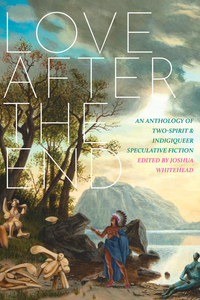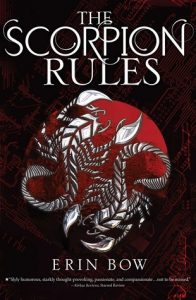Amazon Affiliate Link | Bookshop.org Affiliate Link
The Cybernetic Tea Shop has been one of my comfort reads for years now, one of those stories I can reread over and over. Clara Gutierrez is a technician for Raises — small, animal-shaped robotic companions with a limited range of intelligence and emotions. She doesn’t like settling down in one place, choosing instead to move on frequently, with her only consistent companion her own Raise, a hummingbird called Joanie. On a whim, she decides to move to Seattle.
In Seattle is Sal — a robot, which are specifically differentiated from Raises because of their developmental AI that makes them truly sapient. While the creation of robots has been illegal for quite a long time because of the ethical conundrums they present, Sal predates the law, as she is almost three hundred years old. Her owner purchased her to help with running a tea shop, but passed away years before the story takes place. Sal has continued running the tea shop, clinging to her memories of her owner Karinne.
Clara visits the tea shop at the suggestion of a new coworker, and she and Sal eventually become friends. After a while, Clara also offers to try and help Sal with mechanical problems she’s been having, and with that and Clara helping support Sal after the tea shop is vandalized, their friendship progresses to something different. Both Clara and Sal are asexual, though, and Sal is extremely grateful that she won’t be asked to provide sexual gratification for someone when she doesn’t want or need it herself.
The story is quite short, but it is so cozy and comforting, and it feels like coming home every time I return to it. Most of the story is tightly focused on Clara and Sal and their emerging relationship, which makes sense for a short story, but it’s also clear from their interactions with others that they are cherished parts of other people’s lives. The storyline is fairly straightforward, but definitely makes you think about the way we treat others who are different, even though we in our present day don’t have sapient robots in the world. Sal’s shop is vandalized, she faces discrimination both legal and personal on a regular basis — these are things that real people in our daily lives experience, even though they aren’t sapient robots, and stories like this can help us examine how we react to those real-life stories when we encounter them.
There’s also a big emphasis on memory and how it impacts us as we move forward, and what it means when memory starts to fail. As I am currently going through a family member’s experience with losing memories, this hits harder than it used to, but the calm seriousness with which the story treats it makes it feel like a hug.
I read this book for the first time a few years ago, when there were even fewer books with asexual protagonists than there are now. I likely would have enjoyed the story even if the protagonists were not both explicitly asexual (while the word is not used, they both describe themselves as not feeling sexual desire), but their asexuality is definitely one of the things that keeps bringing me back to this book. As with the use of the story to cover difficult topics in ways that make you think, the presence of asexual characters also makes me feel seen, as if I am also a part of the world.
I know I’ll come back to The Cybernetic Tea Shop many times in the future, as I have many times in the past, and I look forward to it every time.
Rating: 5 stars
Content warnings: discrimination, vandalism, sex that was technically consented to but was not wanted (in the past)



